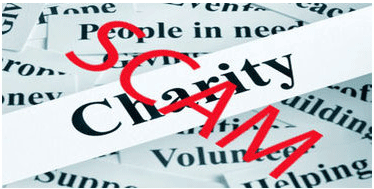
Solicited for donations? Respond with caution
 by Cathy McVey, information technology services
by Cathy McVey, information technology services
When a massive natural disaster hits or a senseless act of violence is reported, it is a very human urge to want to help. When we are miles away we rely on charities and communities to help channel our urges into action – often as easily as clicking a button on a website. Unfortunately, there are individuals in the world who see these large-scale human tragedies as opportunities to scam the well-intentioned.
While no instances have been reported at Miami, other universities and colleges report seeing messages that attempt to “cash in” on the recent tragedy in Orlando. On June 17, the IRS issued a consumer alert warning drawing attention to potential scams and frauds being perpetrated under the guise of providing support for the victims of the recent shootings, their families, and the responders. At least one fake Twitter account asking for bitcoin donations to provide water and cookies to victims has been shut down.
The scammers try to harvest our money, credit card numbers, and our personal account information to use or sell.
How can you respond and still keep your identity and money safe?
If you choose to donate online be sure you type in the address of the charity. Don’t trust that a link in any email will take you to the legitimate site. Many scammers create sites that mimic real charities but may spell the name just a little differently.
The IRS alert provides more tips on how to avoid being taken by scammers as well as links to other sources of useful information. The National Cyber Security Alliance’s StaySafeOnline website is another source of good information.
Miami faculty and staff are rightly proud of our history as a warmhearted community. Don’t allow that warm heart to leave you vulnerable. Several options to support the victims of the Orlando shootings have been posted to reputable media sites. Money magazine’s web page has a series of suggestions for donating carefully.
If you receive messages you think might be scams, do not respond. Forward the message to InfoSec@MiamiOH.edu and then just delete.
